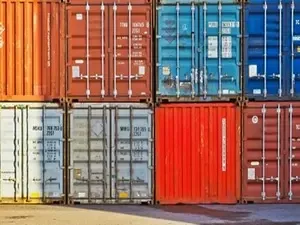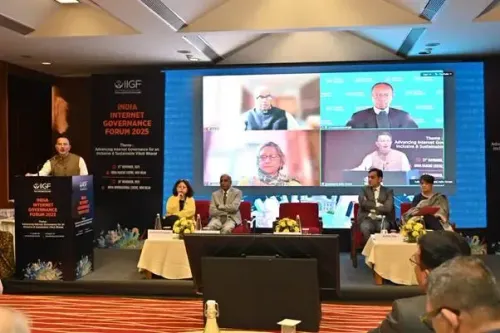South Korea's Manufacturing Sector Sees Largest Decline in 18 Months

Synopsis
Key Takeaways
- Manufacturing output down 4.2% in January.
- Largest drop since July 2023.
- Domestic shipments fell 11.8%.
- PMI dropped to 49.9 points in February.
- Industry facing an unprecedented crisis.
Seoul, March 9 (NationPress) South Korea's manufacturing output experienced a decline of over 4 percent year-on-year in January, representing the most significant decrease in 18 months, as indicated by recent data released on Sunday.
The Manufacturing Production Index recorded 103.7 points in January, which is a drop of 4.2 percent compared to a year earlier, according to Statistics Korea.
This decline is the most pronounced since July 2023, when the index fell by 6.6 percent, according to a report by Yonhap news agency.
The government attributed the weak manufacturing output to a reduced number of working days in January, largely due to the extended Lunar New Year holiday, although concerns over a prolonged economic slowdown are increasing.
Specifically, shipments of manufactured goods saw a significant drop of 7.4 percent year-on-year in January, marking the largest decrease in two years.
Domestic shipments plummeted by 11.8 percent, while international shipments decreased by 1.2 percent.
Additionally, the Purchasing Managers' Index (PMI) for South Korea's manufacturing sector fell to 49.9 points in February, down from 50.3 in January, according to S&P Global.
A PMI reading below 50 indicates contraction in the manufacturing sector, while a reading above 50 signifies growth.
The Federation of Korean Industries has recently indicated that the manufacturing sector is facing an unprecedented crisis and has urged the government to implement support measures to enhance the industry’s competitiveness.
Last week, U.S. President Donald Trump referenced Taiwan and South Korea while discussing the U.S. loss of semiconductor business to foreign markets.
Trump reiterated his criticism of the CHIPS and Science Act, labeling it a tremendous waste of money. This act was enacted by his predecessor, Joe Biden, in 2022 to encourage domestic chip production through financial incentives.
“We gradually lost the chip business, and now it's almost exclusively in Taiwan. They stole it from us. They took it from us,” he stated, highlighting that the chip industry was once led by American entrepreneur Andrew Grove, the former CEO of Intel Corp.
He added, “We had the chip business, and now it's all in Taiwan, almost exclusively... a little in South Korea, but mostly in Taiwan.”









